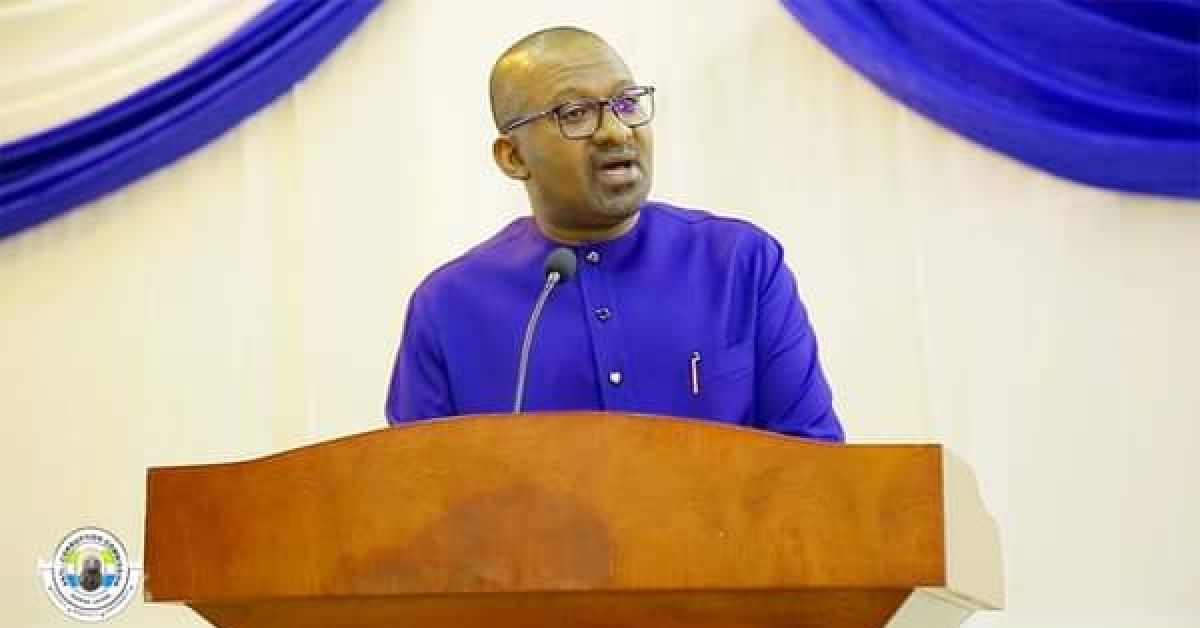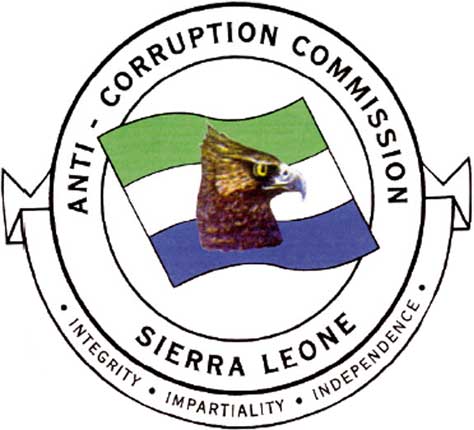“Because we are currently rated highly in the battle against corruption, as a Government, we will continue to support the Anti-Corruption Commission’s work in avoiding this menace.” During the celebration of International Anti-Corruption (IAC) Day at Catco Hall, Wilkinson Road, Freetown, on Friday, December 9, His Excellency, Vice President of the Republic of Sierra Leone, Dr. Mohamed Juldeh Jalloh gave the Keynote Address on the Day’s activities.
Since corruption is a product of government and occurs primarily in the public sphere, it is dependent on political actors’ willingness to demonstrate the necessary political will for the battle against corruption to be successful. This obligation is made clear to the government in UNCAC Chapter II Article 6(4), which states that “Each State Party shall grant the body or bodies referred to in paragraph 1 of this article the necessary independence, in accordance with the fundamental principles of its legal system, to enable the body or bodies to carry out its or their functions effectively and free from any undue influence.” The required material resources, specialist personnel, and any necessary training for such personnel to perform their duties should be made available.
Addressing the audience on political will and the impacts the Bio Government has done over the years, VP Juldeh Jalloh mentioned this:

What is political will?
Political will is defined as “the commitment of political leaders and bureaucrats to undertake actions to achieve a set of objectives and to sustain the costs of those actions over time” by Derrick W. Brinkeroff in his book “Assessing Political Will for Anti-Corruption Efforts: An Analytic Framework.” Therefore, the Sierra Leonean government, especially the presidency, must ensure that the battle against corruption receives the necessary backing to be successful.
To ensure the independence for the Commissioner and Commission to carry out their job freely, this support must come in a variety of forms. Executing the Commission’s work without interference from politics is one of such forms of assistance. The Anti-Corruption Act of 2008 (as revised in 2019) makes it explicit in Section 9(2) that the Commission is not subject to the direction or control of any person or authority when carrying out its duties.
Although studies have shown that most governments around the world have interfered with and exercised direct control on the work of their anti-corruption bodies by stifling resource allocation to them, the provision of resources to the Anti-Corruption Commission (ACC) for its operations in Sierra Leone is a further testament and demonstration of political will in regard to the fight against corruption.
When one is severely hungry and unable to carry out daily tasks because of a lack of supplies, no one wants to talk about accountability or honesty. If the ACC needed to conduct raids to combat examination fraud, it would be impossible without functioning vehicles, fuel, and other necessary resources.
Without adequate personnel and financial resources, efforts to investigate and prosecute alleged corruption cases are in vain.
“While the success of the battle against corruption is severely impacted by the problem of independence, I can state with confidence that one of the things I have valued as a Commissioner is the independence the President has granted me to carry out my duties. I will always be appreciative to the President, His Excellency Brigadier (Rtd.) Dr. Julius Maada Bio, and his administration for this. According to Commissioner Francis Ben Kaifala, the salaries of the Commission’s workers have recently increased by 25% after an initial 10% increase, bringing the total to 35%.

It is impossible to overstate how much the Commissioner’s confirmation of the Vice President’s statement about the Government’s commitment to seeing that the Commission is successful in its work has contributed to the Commission’s consistency over the past four years in exceeding expectations set by international anti-corruption watchdogs like Transparency International and the United States Government’s Millennium Challenge Corporation Scorecard for measuring the fight against corruption.
The Sierra Leonean government is opening up the public space within its Ministries, Departments, and Agencies (MDAs) to promote better accountability through the Open Government Partnership Global and the Open Government Partnership Africa. Citizens will then be able to hold the government accountable.
This was prompted by calls from civil society for increased transparency from the government about budget allocation and project execution. By avoiding supervision and procedural mistakes that alert auditors to the presence of corruption, MDAs are now better able to combat corruption thanks to the introduction of Integrity Management Committees (IMCs) and the Right to Access Information Act of 2009. As a result, accountability has benefited.
The Rt Hon. Vice President was very clear about the parallel reforms the government was instituting to ensure accountability in MDAs when he stated: “We have created a platform that we call the Accountability Framework Group that includes the Auditor General, the Chairman of the Public Accounts Committee in Parliament, Commissioner ACC, the Financial Secretary from the Ministry of Finance, and a member of the Ministry of Justice, to discuss how and what additional steps the Government can take.
The seriousness of the accountability group members makes it evident why political will has been the driving force behind the ACC’s effectiveness in combating graft as well as the aggressive promotion of accountability in MDAs.
The nation recently passed the Extractive Industry Transparency Initiative with an admirable score of 87% thanks to this paradigm shift in responsibility. The evaluation was conducted for 51 nations, 24 of which are African nations that have vowed to increase transparency, honesty, and accountability in the extractive industry by adhering to the requirements of the Extractive Industry Transparency Initiative.
These requirements challenged countries on the systematic public disclosure of critical regulatory information, the concealment of which allows corruption to flourish such as:
Identity of beneficial owners (i.e. the persons that own and control licensed companies)
Systematic reports on exploration and extractives activities, and Financial data and transactions related to State investment in state-owned extractive companies.
David Yusuf Kabia, Public Relations Assistant, ACC
Without political will, not only will efforts to combat corruption be substantially weakened, which inevitably results in failure, but also the entire structure of government as a whole.
In order to create strong and efficient public institutions for a better and more prosperous society, Sierra Leone’s political leadership must therefore continue to demonstrate the nation’s critical need for political will.
“Sierra Leone has no control over how they assess us, and they have done so favorably. We have made progress in demonstrating the commitment of this government and His Excellency, Dr. Julius Maada Bio to combating corruption. The V.P. Juldeh Jalloh emphasized this as he concluded his Keynote Address at the celebration of the IAC Day. “He is committed to building accountable State institutions and he is committed to building a democratic State and society where every Sierra Leonean is important,” he said.










